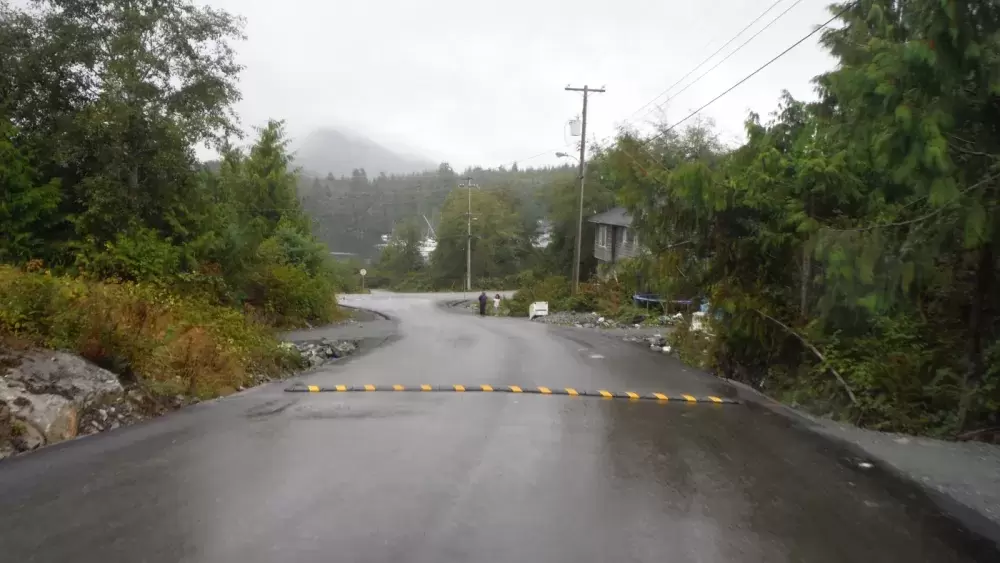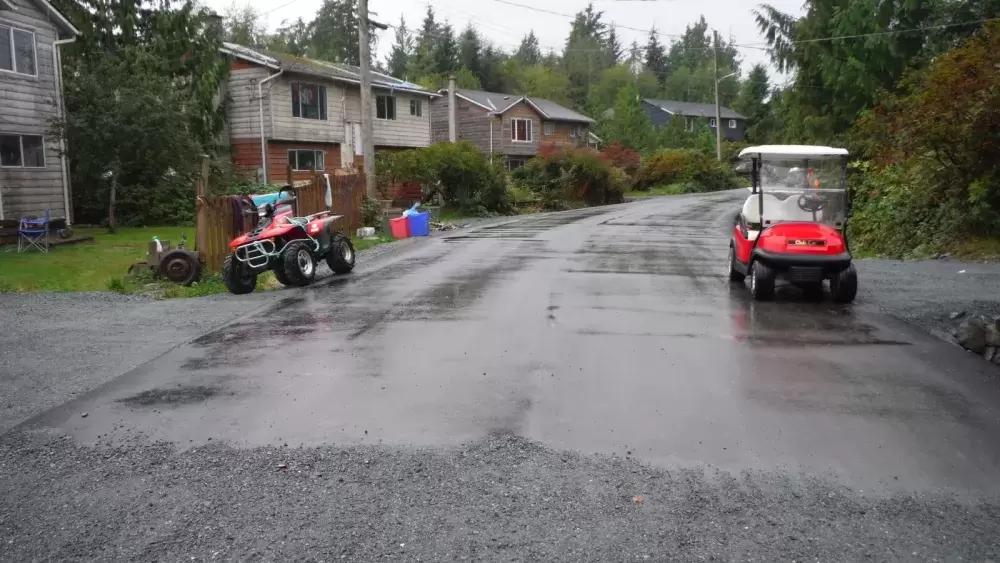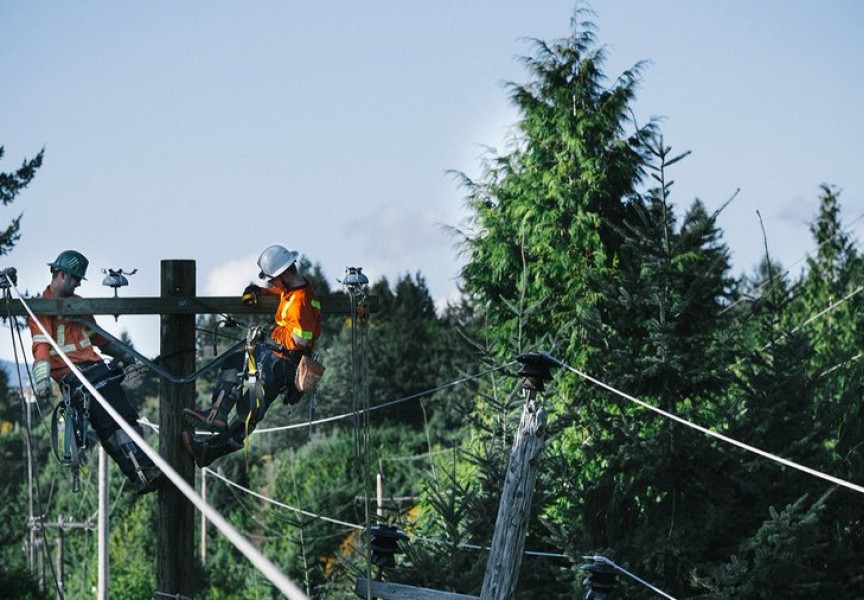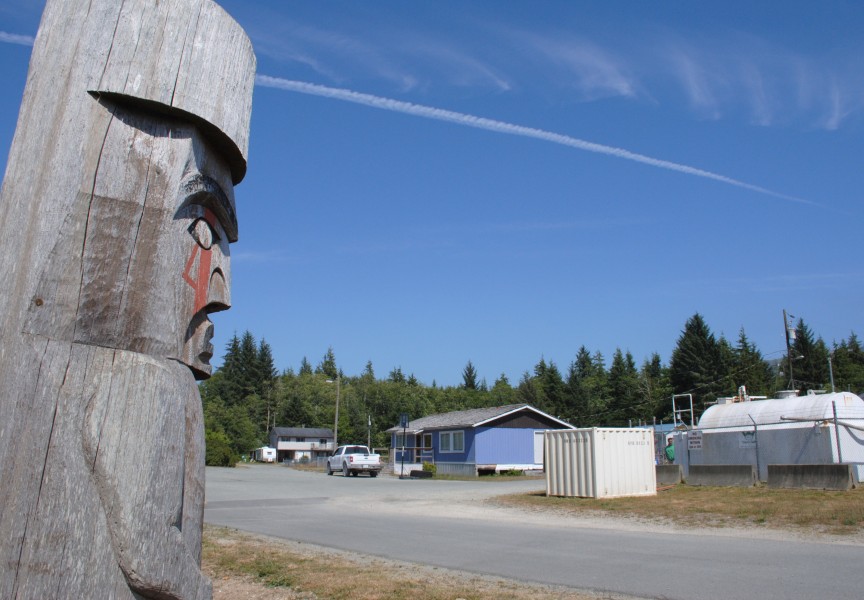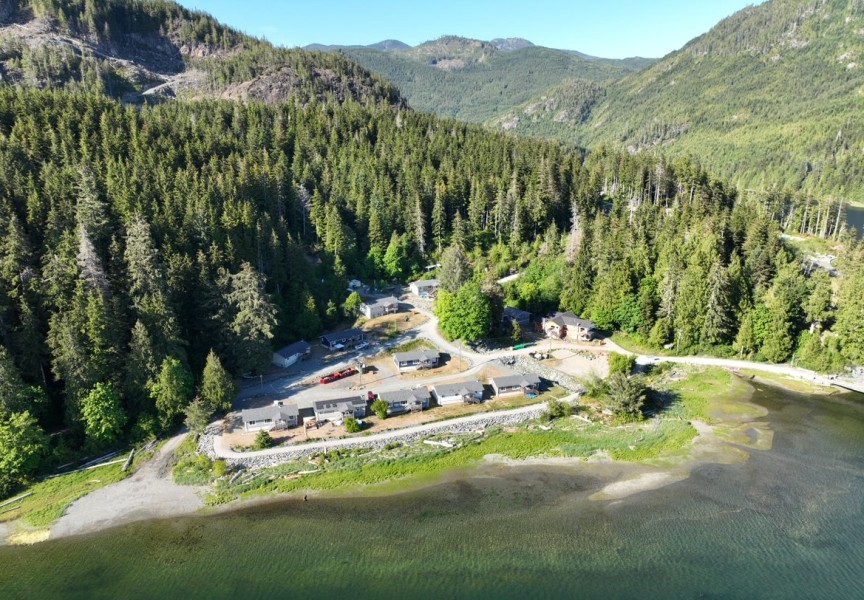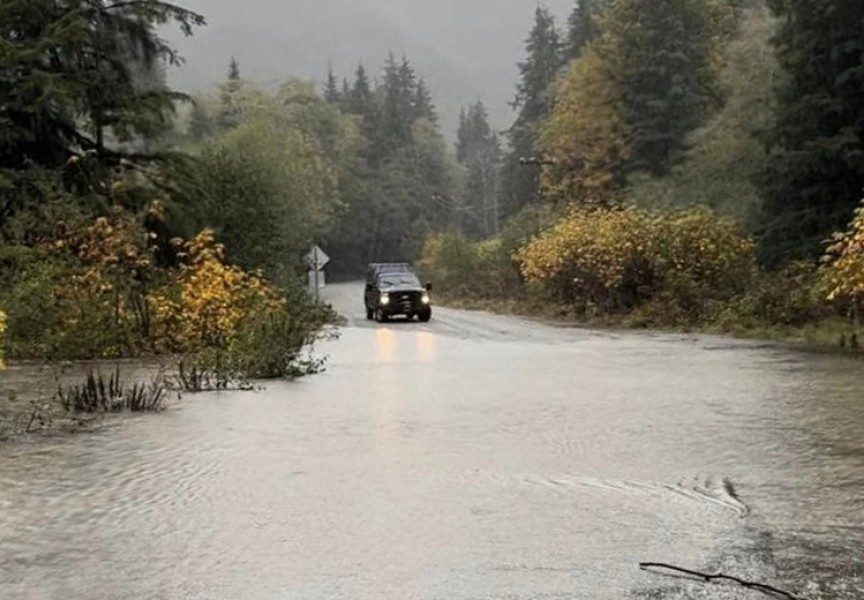The second phase of Ahousaht First Nation’s road-paving project is underway, despite setbacks in May due to rainy weather, said Elected Chief Greg Louie.
It has been at least two years since the nation, located on the remote Flores Island, completed the first phase of the project by paving the roads in the community’s Happy Hill neighbourhood.
In the spring and summer, the roads get really dry, Louie said.
“When it gets windy, there’s a lot of dust that gets blown around and causes a lot of health difficulties – especially for those that have asthma,” he said.
The number of potholes on the roads add to the problem by making it difficult for emergency vehicles to transport those in pain, Louie said.
Paving the roads will not only help the overall health of the community, but improve drainage issues, he said.
Without proper drainage, water is flowing into the foundations of homes, often leading to mould, Louie said.
“[If] water seeps into the home, it causes health problems to the homeowners,” he said. “And if your health is already compromised, then this just adds to it.”
The roughly $8 million project was funded by the federal government and has been over eight years in the making, Louie said.
Negotiations began well before Louie was elected as chief.
“Many other leaders and chiefs wanted this before I did,” he said.
As the community continues to expand by creating new subdivisions, Louie said he anticipates new phases of the project being added over time.
Nanaimo-based Hazelwood Construction Services Inc. was contracted to handle all the civil construction work in preparation for the paving.
Part of that work consisted of creating on-site drainage.
“We re-sloped existing ground,” said Sue Bassett, Hazelwood project manager. “We put in culverts and storm drain piping, including catch basins.”
Instead of water running off into people’s yards and into their foundations, Bassett said it will be captured by the catch basins, which will move it into the underground piping.
From there, Bassett said, it’ll run into the ocean.
“It’s greatly needed,” she said. “And it’s about time it happened.”
Associate Engineering is the engineering company contracted to do the paving. According to their Indigenous infrastructure manager, Freda Leong, the anticipated start date for paving is early-August.
Once the paving is complete, Louie said the community will need to be mindful about driver and pedestrian safety.
Some are concerned that the newly paved roads will encourage speeding, he said.
Community members still need to be consulted, but Louie said the nation plans to significantly reduce speed limits in school zones and build speed bumps along the new roads.
“There's some adjustments we have to make of our own that fit for our community,” he said. “It’s exciting. It’ll be good to have less dust and drainage problems.”

